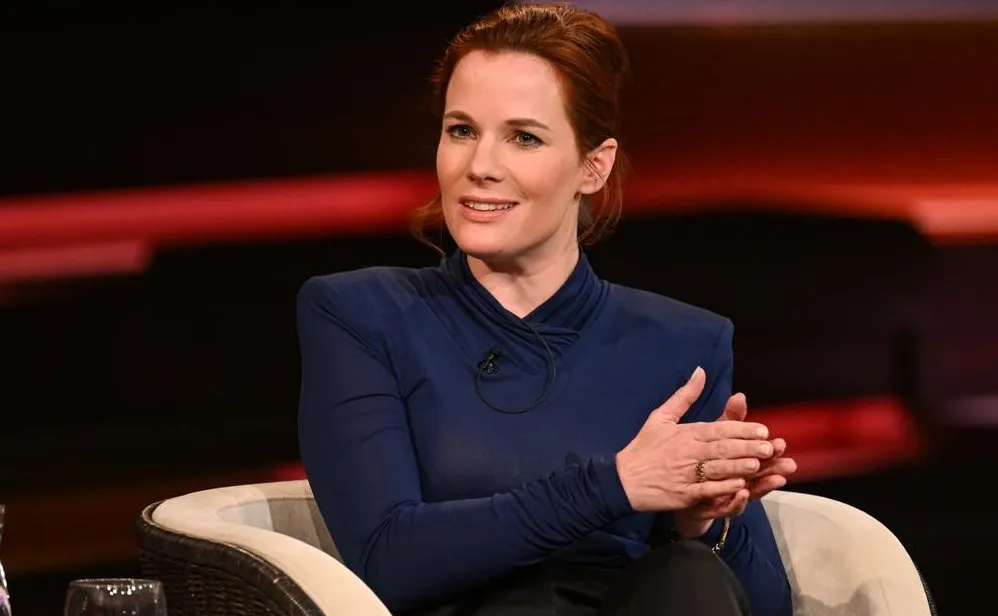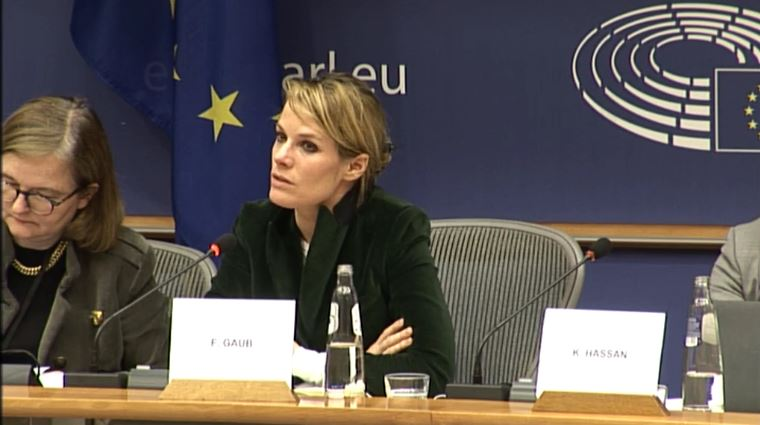Florence Gaub is a prominent researcher, academic, and author with expertise in international relations, security, and geopolitical analysis, especially in the Middle East, North Africa, and Europe. Born in Germany and educated in France, Gaub has held roles in esteemed institutions such as the European Union Institute for Security Studies (EUISS), where she has contributed to the understanding of geopolitical dynamics, conflict prevention, and strategic forecasting. Her unique background and experiences have shaped her research, allowing her to provide valuable insights into the evolving political landscapes and security issues worldwide.
Early Life and Education

Florence Gaub was born in 1977 in Germany to German and Lebanese parents, which exposed her from a young age to a diverse cultural heritage. Her formative years were spent in Germany, but she later pursued higher education in France, where she earned a PhD in political science from the University of Munich. Her educational background, combined with her family heritage, fostered a deep interest in international relations and conflict resolution. The blend of European and Middle Eastern cultural influences is a recurring theme in her research, allowing her to provide a nuanced perspective on cross-cultural issues and the sociopolitical complexities of both regions.
Career in International Relations
Gaub’s career in international relations began in the early 2000s, and she quickly established herself as a significant voice in the field. She worked with the German Council on Foreign Relations and the NATO Defense College before joining the European Union Institute for Security Studies. At EUISS, she served as a Senior Analyst and later Deputy Director, focusing on Middle Eastern and North African security issues, conflict resolution, and strategic forecasting.
Her research at EUISS has covered a wide array of topics, including the impacts of demographic changes on security, the role of societal resilience in conflict regions, and the future of warfare. Her background allows her to analyze conflicts from both an academic perspective and a real-world strategic viewpoint, making her insights valuable to policymakers and academics alike.
Research and Publications

Florence Gaub has authored numerous articles, reports, and books that contribute to the academic understanding of security and conflict. Some of her notable publications include:
- “The North Atlantic Treaty Organization and Libya”: In this work, Gaub analyzes NATO’s intervention in Libya, examining the political, military, and strategic complexities of the mission. Her study provides insights into the challenges NATO faces in coordinating multinational interventions and the lessons learned from the Libyan conflict.
- “Arab Futures: Three Scenarios for 2025”: This report offers strategic foresight on the future of the Arab world, exploring potential developments based on demographic, social, and political trends. Gaub’s foresight work reflects her interest in anticipating future challenges and shaping policy responses to prevent conflict.
- “The Maghreb as a Security Region”: Gaub explores the security dynamics of North Africa, particularly focusing on Algeria, Morocco, and Tunisia. She examines the role of regional cooperation, the influence of external powers, and the impact of socio-political movements on regional stability.
Her work also frequently touches on topics such as migration, societal resilience, and the implications of demographic changes on national security. Gaub’s ability to combine political science with strategic forecasting allows her to present complex issues in an accessible manner, making her publications valuable for both policymakers and the general public.
Perspectives on Conflict and Resilience
One of Florence Gaub’s significant research interests is societal resilience and its impact on conflict resolution. She has argued that societies with strong social networks, economic stability, and inclusive political systems are more likely to withstand and recover from crises. Her work on resilience is particularly relevant in today’s world, where political, social, and environmental stressors challenge the stability of nations worldwide.
Gaub’s insights into resilience have informed her views on conflict prevention and management. For instance, she believes that addressing underlying socio-economic issues, rather than focusing solely on military solutions, is essential for long-term peace. Her approach emphasizes the importance of creating inclusive societies that can adapt to change and resist radicalization.
Family Life and Children

Although Florence Gaub is a public figure, she maintains a relatively private personal life, especially concerning her family. As an academic and policy expert, she has not publicly discussed her children or family in detail, respecting their privacy. Balancing the demands of a high-profile career in international relations with family life is undoubtedly a challenge, yet Gaub has managed to excel in her professional endeavors while maintaining her personal life out of the spotlight.
Her dedication to her work and her ability to maintain this balance often serve as inspiration to other professionals, particularly women in academia and policy-making, who strive to navigate similar challenges. Florence Gaub’s career trajectory underscores the possibility of excelling professionally while respecting the privacy and needs of one’s family.
Contributions to International Security and Policy-Making
Gaub’s work in international security and her role as a strategic forecaster have had a tangible impact on policy-making in Europe and beyond. Her insights are frequently sought by European policymakers, and she has presented her research at numerous international conferences, contributing to the shaping of foreign policy strategies. Gaub’s expertise in both European and Middle Eastern affairs makes her a valuable asset in discussions on migration, radicalization, and cross-cultural understanding.
In addition to her role as an academic and researcher, Florence Gaub has also engaged with the public through media appearances, interviews, and lectures. She advocates for greater public understanding of complex geopolitical issues and the importance of strategic planning in international relations. By bridging the gap between academia and public discourse, she helps raise awareness of the significance of international cooperation, resilience, and preventive measures in maintaining global security.
The Future of Florence Gaub’s Work

Looking to the future, Florence Gaub’s research is likely to continue focusing on the evolving dynamics of international security, especially in light of emerging global challenges. Topics such as climate change, cyber warfare, and shifting political alliances are areas where her expertise will be valuable. Her work in strategic forecasting allows her to anticipate future developments and provide insights that can help shape proactive policy responses.
As the global landscape becomes increasingly complex, experts like Florence Gaub play a critical role in navigating uncertainty and promoting stability. Her work reminds us of the importance of understanding not only current conflicts but also the societal foundations that support resilience and peace. By anticipating future challenges, Gaub’s research provides a roadmap for policymakers, helping them to create informed, sustainable strategies for the years to come.
Conclusion
Florence Gaub’s contributions to international relations and security studies have had a lasting impact on the academic and policy communities. Her unique perspective, shaped by her diverse cultural background and extensive academic training, allows her to address complex geopolitical issues with a nuanced understanding that few others possess. As a researcher, author, and strategic thinker, Gaub has helped shape the conversation around resilience, conflict prevention, and the future of international security.
While she remains a private individual when it comes to her personal life, her professional achievements continue to inspire many in the fields of security studies and international relations. Florence Gaub’s work underscores the importance of interdisciplinary approaches to global issues, combining political science, strategic forecasting, and cultural understanding to create a more stable and cooperative world. Her insights are essential as we navigate the complexities of an interconnected, ever-changing global landscape, and her legacy will undoubtedly influence future generations of scholars and policymakers.

